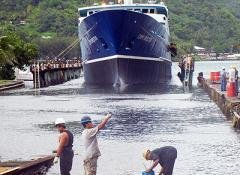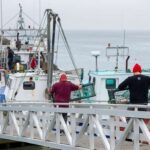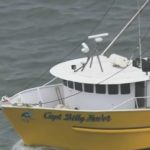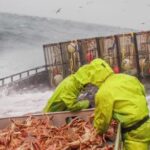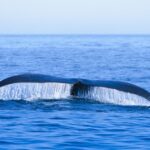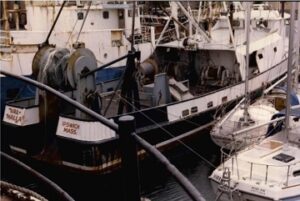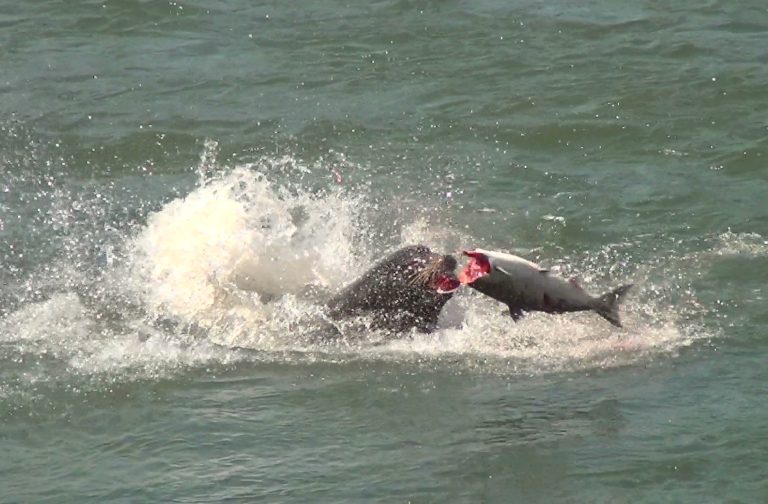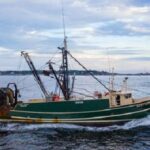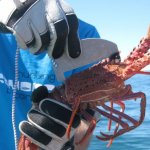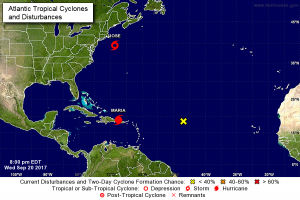Daily Archives: February 3, 2013
Former RI Attorney General James E. O’Neil, Esq. Letters to Rhode Island Coastal Resources – U.S. Army Corps of Engineers – Deepwater Wind
Rhode Island Coastal Resources February 1, 2013
Management Council
Re: Objection to Deepwater Wind Requested Waiver of Application Fee
Dear Sir/Madam,
Please be advised that I respectfully request that my objection to request for waiver of application fee be recorded and be a matter of record in this matter. In addition to objecting to Deepwater’s requested waiver, I am also requesting that a public hearing be scheduled in order that the public be afforded the opportunity to be heard and to witness the process as CRMC considers Deepwater’s request.
U.S. Army Corps of Engineers February 1, 2013
Re: Deepwater Wind
File Number NAE-2009-789
Dear Mr. Elliot,
I am respectfully requesting that the Corps comply with the National Environmental Policy Act (NEPA) and applicable Federal regulations by compiling an objective, independent environmental impact statement relating to the Deepwater application. Deepwater’s proposed project will consist of five wind turbines, measuring approximately 660 feet in height, covering 117 acres of ocean located three and a half miles, south, southeast of Block Island, Rhode Island. Dredging which will be essential to the project as well as the obstruction of navigation will be significant. The recent concern regarding the decrease in Winter Flounder and the impact the Deepwater project will have on that precious population is clearly an issue. Some have argued that the turbine structures will create a reef which will attract a greater population of fish. If in fact such premise has a ring of truth, one must then wonder how can the hard working members of our fishing fleet harvest fish in waters being “beaten” by turbines. This is not simply a public works project; this is a project by a private developer who stands to earn millions.
Hurricane Sandy Emergency Supplemental Funding U.S. Fish and Wildlife Service Facilities To Be Repaired
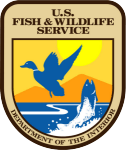 The U.S. Fish and Wildlife Service will receive $68.2 million to make repairs to 25 national wildlife refuges and three national fish hatcheries from Florida to Maine. The funds will be invested to restore facilities to their pre-Sandy condition. Projects will include debris field clean-up, rebuilding roads, trails, and other public access facilities, and restoring important ecosystems that benefit communities as well as wildlife. In many areas, the Service will restore facilities to be more resilient and withstand future storms and rising sea levels. Read the list here
The U.S. Fish and Wildlife Service will receive $68.2 million to make repairs to 25 national wildlife refuges and three national fish hatcheries from Florida to Maine. The funds will be invested to restore facilities to their pre-Sandy condition. Projects will include debris field clean-up, rebuilding roads, trails, and other public access facilities, and restoring important ecosystems that benefit communities as well as wildlife. In many areas, the Service will restore facilities to be more resilient and withstand future storms and rising sea levels. Read the list here
Rhode Island Fishermen’s Alliance Weekly Update – FEBRUARY 3, 2013
 “The Rhode Island Fishermen’s Alliance is dedicated to its mission of continuing to help create sustainable fisheries without putting licensed fishermen out of business.” Read the update here
“The Rhode Island Fishermen’s Alliance is dedicated to its mission of continuing to help create sustainable fisheries without putting licensed fishermen out of business.” Read the update here
US Pacific fisheries treaty negotiations under time pressure
 MAJURO — Time is running out for the United States tuna industry to complete an agreement that will keep its boats fishing in the lucrative waters of the Pacific islands. A joint U.S. government and industry team heads into a crucial series of negotiations with Pacific island representatives starting Monday in Auckland, New Zealand that will determine if American purse seiners can continue to fish beyond June, when the current 10-year funding package expires. Read more here
MAJURO — Time is running out for the United States tuna industry to complete an agreement that will keep its boats fishing in the lucrative waters of the Pacific islands. A joint U.S. government and industry team heads into a crucial series of negotiations with Pacific island representatives starting Monday in Auckland, New Zealand that will determine if American purse seiners can continue to fish beyond June, when the current 10-year funding package expires. Read more here
Maine – Another View: LePage administration right to oppose offshore wind project
 The truth is that the project’s benefits to Maine are ambiguous, while the costs to our state are clear and real — nearly $200 million will need to be subsidized by Maine families and businesses. This is the wrong direction for developing a new industry and antithetical to improving Maine’s business climate and reducing the energy bill burdens on Maine families. Read more here
The truth is that the project’s benefits to Maine are ambiguous, while the costs to our state are clear and real — nearly $200 million will need to be subsidized by Maine families and businesses. This is the wrong direction for developing a new industry and antithetical to improving Maine’s business climate and reducing the energy bill burdens on Maine families. Read more here
Maine Voices: Hope remains for New England fisheries
 For our part, The Nature Conservancy has worked with fishermen and other partners for several years because we are committed to being more than an interested bystander. We became a stakeholder in this fishery by acquiring groundfish permits, and have used them to support collaborative research with fishermen and to help secure long-term access to the fishery. Read more here
For our part, The Nature Conservancy has worked with fishermen and other partners for several years because we are committed to being more than an interested bystander. We became a stakeholder in this fishery by acquiring groundfish permits, and have used them to support collaborative research with fishermen and to help secure long-term access to the fishery. Read more here
Alaska Senator Murkowski unveils blueprint for energy policy
 Murkowski’s “Energy 20/20” proposal is sweeping in scope. Murkowski wants oil leasing off the coasts of Virginia, North Carolina, South Carolina and Georgia. She wants an increase in drilling on federal lands, saying that will hasten independence from imported oil. Read more here
Murkowski’s “Energy 20/20” proposal is sweeping in scope. Murkowski wants oil leasing off the coasts of Virginia, North Carolina, South Carolina and Georgia. She wants an increase in drilling on federal lands, saying that will hasten independence from imported oil. Read more here
Skates, crab quota transfers, Gulf rationalization on tap, Molly Dischner – Portland, Ore., meeting Feb. 6-12
 The North Pacific Fishery Management Council is poised to take final action on skate habitat designations and community rights for Bering Sea and Aleutian Island crab fisheries at its Portland, Ore., meeting Feb. 6-12. The council will also talk about a possible rationalization program for the Central Gulf of Alaska, or GOA. The February agenda includes two discussion papers on that issue — one on trawl economic data collection, and one on trawl catch shares. There’s also an agenda item to review the issues that will arise for Western GOA fishermen as the Central GOA is rationalized, something that the council has heard testimony on at prior meetings. Read more here
The North Pacific Fishery Management Council is poised to take final action on skate habitat designations and community rights for Bering Sea and Aleutian Island crab fisheries at its Portland, Ore., meeting Feb. 6-12. The council will also talk about a possible rationalization program for the Central Gulf of Alaska, or GOA. The February agenda includes two discussion papers on that issue — one on trawl economic data collection, and one on trawl catch shares. There’s also an agenda item to review the issues that will arise for Western GOA fishermen as the Central GOA is rationalized, something that the council has heard testimony on at prior meetings. Read more here
On the brink: New fishing restrictions — Frustration, anger and perhaps end of an industry –
![]() John Bullard, regional administrator of the National Marine Fisheries Service and the National Oceanic and Atmospheric Administration, said an interim measure is only an allusion.“Fisherman don’t need allusions,” Bullard said. “They need a big dose of reality.” The interim action kept the fishery in business while addressing fish stock assessment numbers that were much lower than initially reported. Goethel said that discrepancy in stock assessment needs examination.“There should have been a real serious examination from outside the organization, not just from within,” he said. “We have to start looking for other underlying causes to this problem.” Read more here
John Bullard, regional administrator of the National Marine Fisheries Service and the National Oceanic and Atmospheric Administration, said an interim measure is only an allusion.“Fisherman don’t need allusions,” Bullard said. “They need a big dose of reality.” The interim action kept the fishery in business while addressing fish stock assessment numbers that were much lower than initially reported. Goethel said that discrepancy in stock assessment needs examination.“There should have been a real serious examination from outside the organization, not just from within,” he said. “We have to start looking for other underlying causes to this problem.” Read more here
Local lobstermen fear repeat of glut, low prices
 Lobstermen in Maine last year caught 123 million pounds of lobster, up 18 million from the year before, but worth $3.7 million less, Keliher said. No one knows if last June’s situation will repeat itself this year, he said. In 16 meetings Keliher has held along the Maine coast this January, lobstermen in other packed meeting rooms have told him something needs to be done should it happen again, he said. “We should do something,” he said. “We don’t know what that something is.” Read more here
Lobstermen in Maine last year caught 123 million pounds of lobster, up 18 million from the year before, but worth $3.7 million less, Keliher said. No one knows if last June’s situation will repeat itself this year, he said. In 16 meetings Keliher has held along the Maine coast this January, lobstermen in other packed meeting rooms have told him something needs to be done should it happen again, he said. “We should do something,” he said. “We don’t know what that something is.” Read more here
Coastal zone re-emerges within Alaska Legislature
The coastal management program allows states to put conditions on certain activities on federal lands and waters. Alaska had a program for decades, but it ended in 2011 after the Legislature and Gov. Sean Parnell failed to come to terms on its reauthorization. That left Alaska as the only coastal state in the U.S. without s uch a program. A ballot initiative that would have re-established a program was soundly defeated last August. Read more here
Will Potomac oysters make comeback?
 “Last year at this time, we had about 250 bushels [caught], primarily around St. George’s Island in the lower river,” said Kirby Carpenter, executive secretary of the Potomac River Fisheries Commission in Colonial Beach. This year, there’s been a tenfold increase to around 2,500 bushels.Read more here
“Last year at this time, we had about 250 bushels [caught], primarily around St. George’s Island in the lower river,” said Kirby Carpenter, executive secretary of the Potomac River Fisheries Commission in Colonial Beach. This year, there’s been a tenfold increase to around 2,500 bushels.Read more here
Unalaska Tanner crab ends
Unalaska’s local Tanner crab fishery closed Saturday, while snow crab rolled on. The 35,000 pound Tanner quota was expected to be fully harvested, according to the Alaska Department of Fish and Game in Unalaska. This was the first time in three years that the Unalaska area was opened, and it performed better than the last time, in 2010, when it was closed early because of low numbers of crab in each pot, according to Fish and Game biologist Britta Baechler. Read more here
Mass. fishermen feel strain of new regulations – video
Dennis Robillard has been fishing out of Gloucester for 25 years. He tells FOX 25 the new limit puts him out of the cod business. He has put his boat up for sale. “I figured my parents taught me if I work hard you get out of what you put into something, and unfortunately it doesn’t seem to be the case now,” says Robillard. Read more here
Trawlers 86’d from Unalaska Bay?
 While a trawler lobbyist doubts his boats would risk tearing up a $100,000 net on a crab pot in Unalaska Bay, local small boat fishermen have a simple solution. In their view, the pollock boats should drag their nets someplace else, outside the bay in the wide open Bering Sea…”Trawlers have the whole Bering Sea to fish in. They should not be fishing off our beaches in our community,” said Vincent Tutiakoff, representing both the Unalaska Native Fisherman’s Association and the Qawalangin Tribe of Unalaska. Read more
While a trawler lobbyist doubts his boats would risk tearing up a $100,000 net on a crab pot in Unalaska Bay, local small boat fishermen have a simple solution. In their view, the pollock boats should drag their nets someplace else, outside the bay in the wide open Bering Sea…”Trawlers have the whole Bering Sea to fish in. They should not be fishing off our beaches in our community,” said Vincent Tutiakoff, representing both the Unalaska Native Fisherman’s Association and the Qawalangin Tribe of Unalaska. Read more






